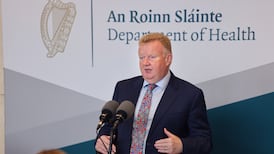The biggest ethical issue linked to the participation of children in clinical trials is how can sick children be expected to be part of a control group when high hopes and expectations are pinned to newer drugs under investigation?
How could a parent agree that his/her child may be been given standard treatment rather than the new "improved" formulation?
A study in British Medical Journal earlier this month deals with this concern. The study of 126 published and unpublished randomised phase III trials found that in clinical trials of new child cancer drugs, the experimental treatments for children are just as likely to be inferior to the standard treatment as they are to be superior.
According to the report, such uncertainty makes it easier for parents and children to decide whether to participate in clinical trials, and for researchers to justify the clinical trial system, which has led to advances in treatment of several childhood cancers.
"There is no controversy with phase III clinical trials because the drugs being tested are established drugs in different formulae," explains Dr Aengus O'Marcaigh, paediatric haematologist at the National Paediatric Haemotology and Oncology Centre at Our Lady's Hospital for Sick Children, Crumlin.
Eighty to 90 per cent of children in Ireland with leukaemia have participated in clinical trials. "The best treatments that exist are on [ phase III] clinical trial. The children's leukaemia trials have been a huge success story with 80 per cent of children now cured of their cancer as compared to 20 per cent 30 years ago."
Enrolling children for clinical trials in phase I (where toxicity is tested) and phase II (where dosage and side effects are tested) may well be more difficult.
Overall, the prevailing view is that children are not little adults and medicines should be tested on them before use. Their growing bodies, changing hormone levels and developing organs all result in a different biochemical puzzle than in adults.
As the regulators make provisions for the establishment of clinical trials in children, our attention will turn to the ethical decisions parents and children will have to make before participating in such trials.
Sylvia Thompson









